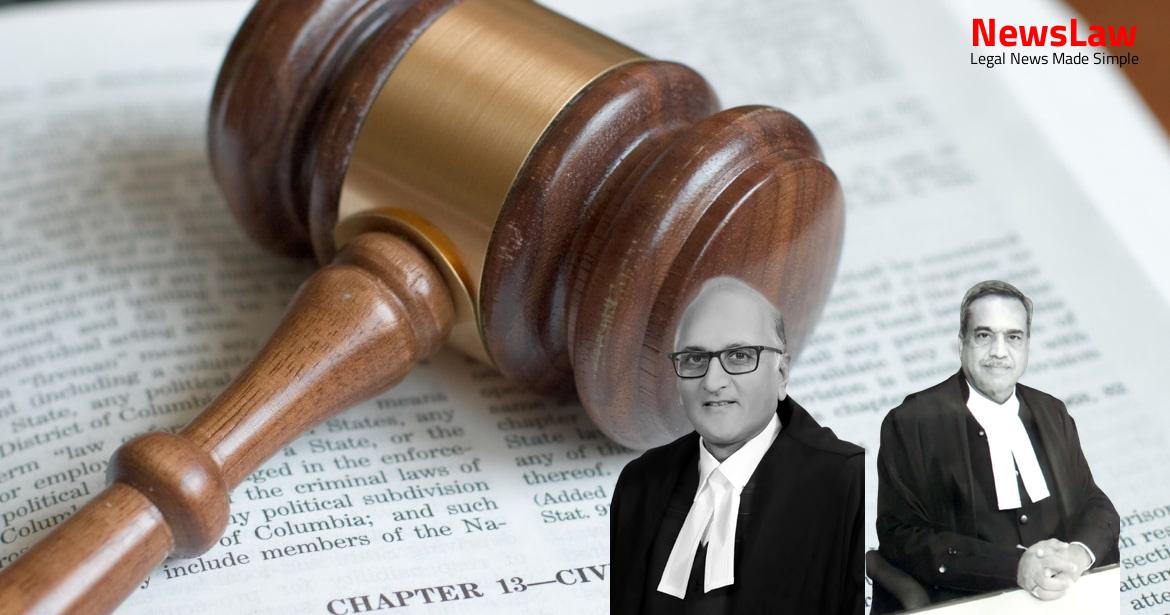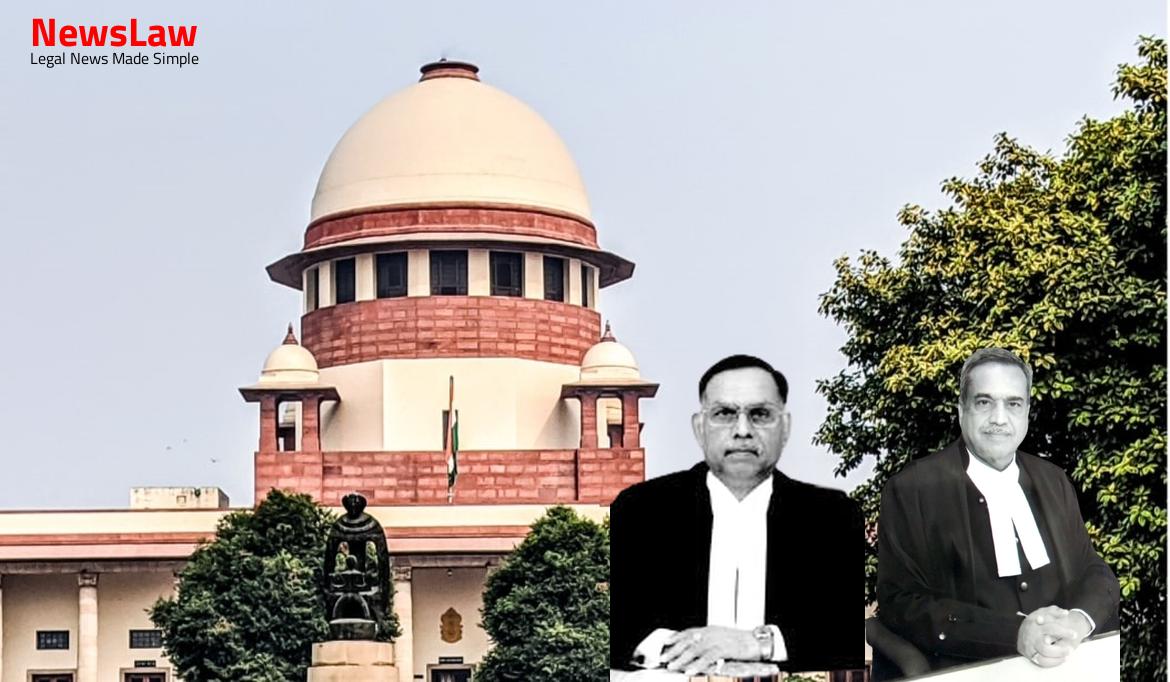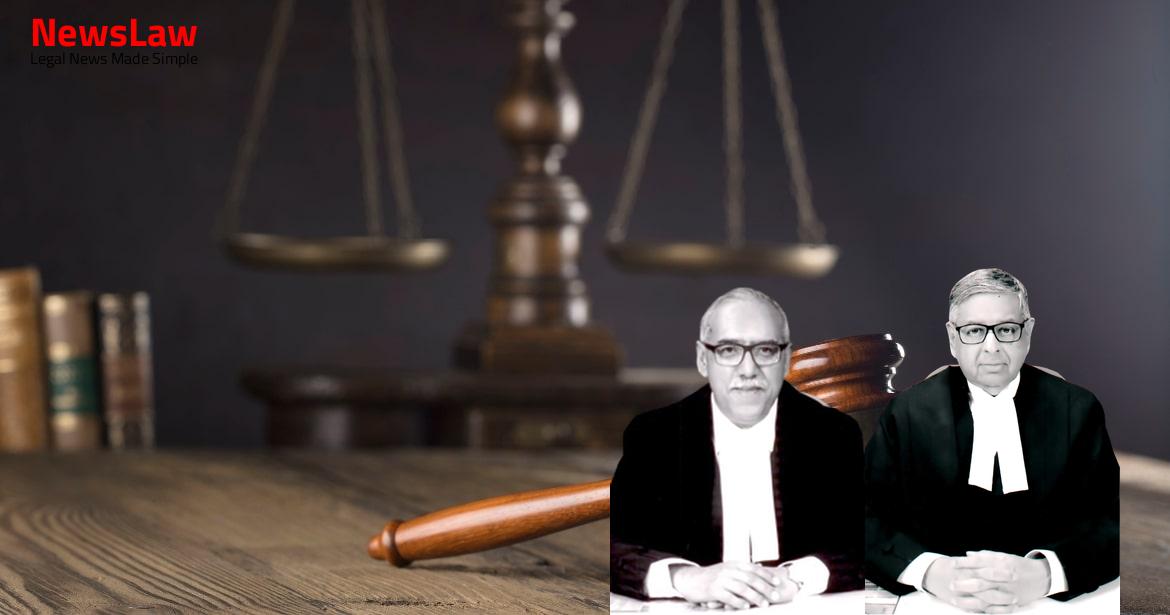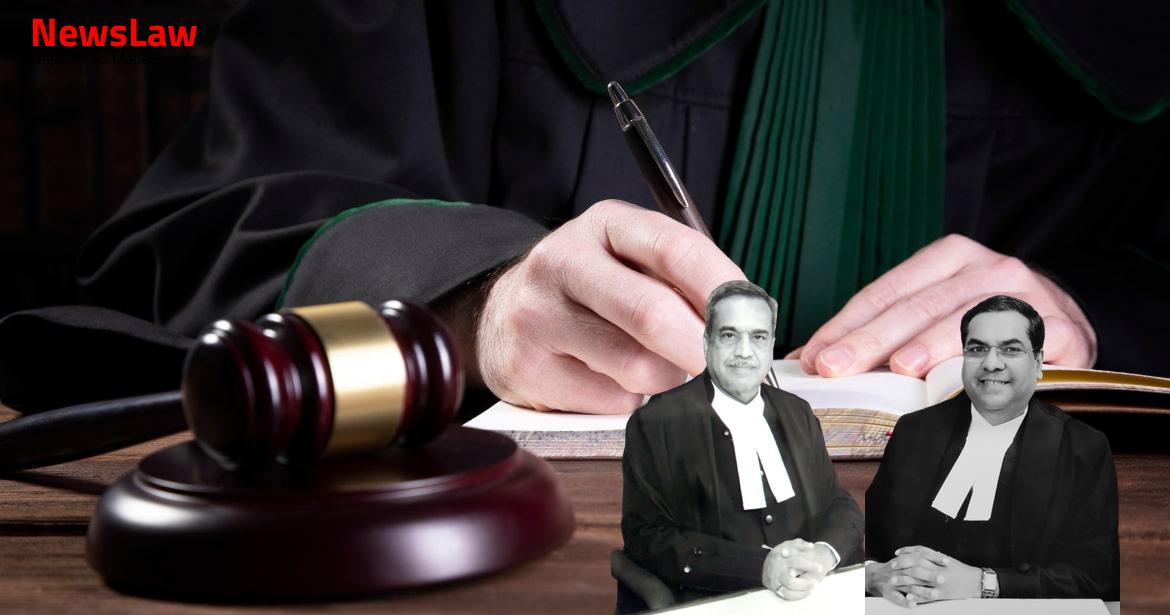The said Satyananada died leaving behind his two sons namely Chakradhar and Gajadhar. 1
Also Read: https://newslaw.in/supreme-court/dispute-over-back-wages-high-court-sets-aside-order-of-cgit/
At the instance of the appellant claiming to be the daughter of Chakradhar and claiming 1/5 share in the amount of compensation a reference was made to the Reference Court under Section 30 of the Land Acquisition Act. The order passed by the learned Reference Court denying the share in the amount of compensation has been confirmed by the High Court by the impugned judgment and order.
Making the above submissions and relying upon above decision, it is prayed to allow the present appeal and to hold that the appellant being daughter of one of the coparceners shall be entitled to 1/5 share in the amount of compensation. That after the death of Chakradhar and his wife, his share in the property stood devolved upon his four sons who held 1/4 share each by way of succession.
It is submitted that apart from the fact that in view of Section 2(2) of the Hindu Succession Act, 1954, the Hindu Succession Act, will not be applicable to the members of the Scheduled Tribe, without any explicit clause in the Hindu Succession Act, the Hindu Succession Act cannot be given a retrospective operation to provide compensation to the appellant.
3 It is further submitted that as per Section 2(2) of the Hindu Succession Act, the Act shall not be applicable to the members of the Scheduled Tribe., (2000) 8 SCC 587, it is clearly held that if the members of the Scheduled Tribe follow customary and practices of Hinduism, then and then only the Hindu Succession Act would be applicable. 5 It is submitted that this Hon’ble Court on many occasions denied extending the benefits of Hindu Succession Act to the tribal communities unless the same has been notified by the Central Government. Therefore, though on equity we may be with the appellant being daughter and more than approximately 70 years have passed after the enactment of the Hindu Succession Act and much water has flown thereafter and though we are prima facie of the opinion that not to grant the benefit of survivorship to the daughter in the property of the father can be said to be bad in law and cannot be justified in the present scenario, unless Section 2(2) of the Hindu Succession Act is amended, the parties being member of the Scheduled Tribe are governed by Section 2(2) of the Hindu Succession Act.
Also Read: https://newslaw.in/supreme-court/challenge-to-dismissal-of-revision-application-in-criminal-case/
2 Now so far as the reliance placed upon the decision of this Court in the case of Madhu Kishwar (supra) by the learned counsel for the appellant is concerned, at the outset it is required to be noted that by the majority decision this Court refused to strike down the provisions of Chota Nagpur Tenancy Act, 1908 which provided the succession to property in the male line of heirs and denying the right to Succession to the daughter, on the touchstone of Article 14. 3
This Court also directed to examine the question of recommending to the Central Government whether the Central Government consider it just and necessary to withdraw the exemptions given under the Hindu Succession Act and the Indian Succession Act in so far as the applicability of these provisions to the Scheduled Tribes in the State of Bihar is concerned.
Under the circumstances in view of Section 2(2) of Hindu Succession Act and the appellant being the member of the Scheduled Tribe and as the female member of the Scheduled Tribe is specifically excluded, the appellant is not entitled to any right of survivorship under the provisions of Hindu Succession Act.
To deny the equal right to the daughter belonging to the tribal even after a period of 70 years of the Constitution of India under which right to equality is guaranteed, it is high time for the Central Government to look into the matter and if required, to amend the provisions of the Hindu Succession Act by which the Hindu Succession Act is not made applicable to the members of the Scheduled Tribe.
Also Read: https://newslaw.in/supreme-court/lapse-of-land-acquisition-under-section-242-of-the-act-2013/
We hope and trust that the Central Government will look into the matter and take an appropriate decision taking into consideration the right to equality guaranteed under Articles 14 and 21 of the Constitution of India.
Case Title: KAMALA NETI (DEAD) THR. LRS. Vs. SPECIAL LAND ACQUISITION OFFICER . (2022 INSC 1264)
Case Number: C.A. No.-006901-006901 / 2022



